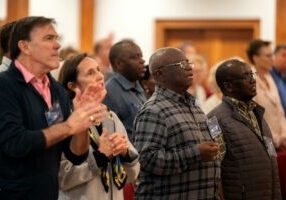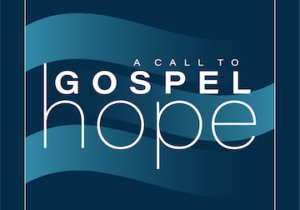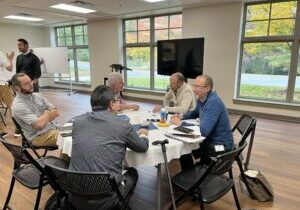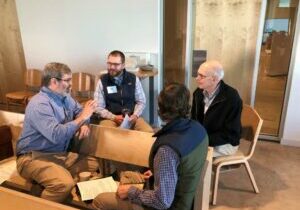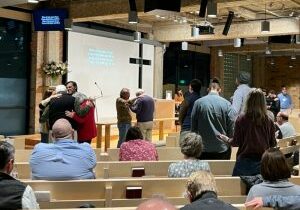Networking Mental Health Professionals Within the Church
 By Dr. Nathaniel R. Strenger, All Saints Dallas
By Dr. Nathaniel R. Strenger, All Saints Dallas
When certain members of All Saints Anglican Church in Dallas discovered that the congregation was home to many licensed and trained mental health practitioners (that is psychiatrists, psychologists, counselors, social workers and chaplains), they invited these professionals to coalesce around a series of introductory committee meetings. The questions were posed: How can we offer our skill sets to All Saints? What does the church need from us? And ideas abounded. All while consulting our clergy, we tackled the easiest tasks first. We wrote up a referral list of professional folks and their specializations. Who takes insurance? Who serves marriages, those dealing with addiction, children? Who practices in which sectors of the city?
From there we looked to May, Mental Health Awareness Month. Providers spoke of mental health care from the pulpit, sharing personal stories and professional convictions. Another committee member set to work compiling a list of professionally approved resources—books, groups, websites—addressing the swath of mental health needs for which people approach the clergy for help. Two other members, specializing in group dynamics, put together a training offered to All Saints small group leaders.
And even now, we develop adult education classes weaving together spiritual disciplines and mindfulness. We offer church staff workshops on ministerial burnout and resiliency. We brainstorm mental health resources for congregants encountering loss or loneliness during those higher holidays.
But none of this is to say that the work is unidirectional. Yes, we gathered together to serve the church, but clinicians need clergy too. Psychologists and counselors regularly encounter spiritually laden life circumstances in those whom they serve. There are a number of published studies demonstrating just this. Precious few graduate mental health programs spend more than a measly hour or two teaching professionals the ways different religious traditions express themselves psychologically. And so regular consultations, and even trusted ministerial referrals, are (or most certainly should be) a normal part of a therapist’s work.
And so, a sort of working synergy develops. It is one that erodes the embankments partitioning off spiritual life from the life of the mind and body. And this erosion, allowing for better institutional integration, proves invaluable to the mental health apparatus and the church alike.
 Nathaniel R. Strenger, Psy.D., and his family are members of All Saints Dallas. He is a licensed psychologist and the director of clinical advancement at The Center for Integrative Counseling and Psychology in Dallas, Texas. As part of his studies and professional background, Dr. Strenger has taught, lead workshops and written on topics including trauma, spirituality across the lifespan, community coordination in care, parenting concerns, clergy family issues and emotional regulation in children, teens and adults. In addition to his work at The Center, Dr. Strenger is also president elect to the American Psychological Society’s Dallas Division 39 chapter, the Dallas Society for Psychoanalytic Psychology.
Nathaniel R. Strenger, Psy.D., and his family are members of All Saints Dallas. He is a licensed psychologist and the director of clinical advancement at The Center for Integrative Counseling and Psychology in Dallas, Texas. As part of his studies and professional background, Dr. Strenger has taught, lead workshops and written on topics including trauma, spirituality across the lifespan, community coordination in care, parenting concerns, clergy family issues and emotional regulation in children, teens and adults. In addition to his work at The Center, Dr. Strenger is also president elect to the American Psychological Society’s Dallas Division 39 chapter, the Dallas Society for Psychoanalytic Psychology.


